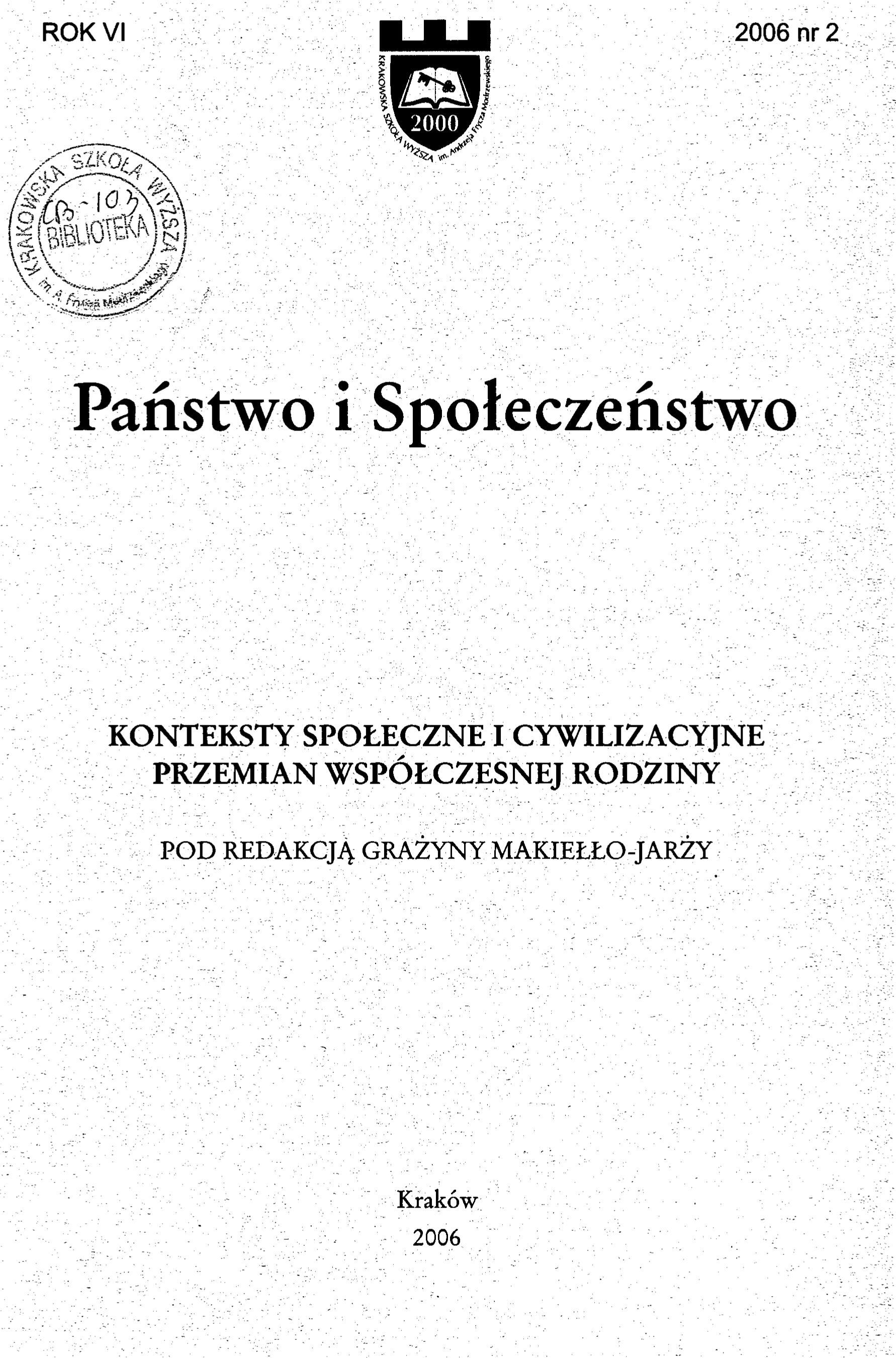
We kindly inform you that, as long as the subject affiliation of our 300.000+ articles is in progress, you might get unsufficient or no results on your third level or second level search. In this case, please broaden your search criteria.

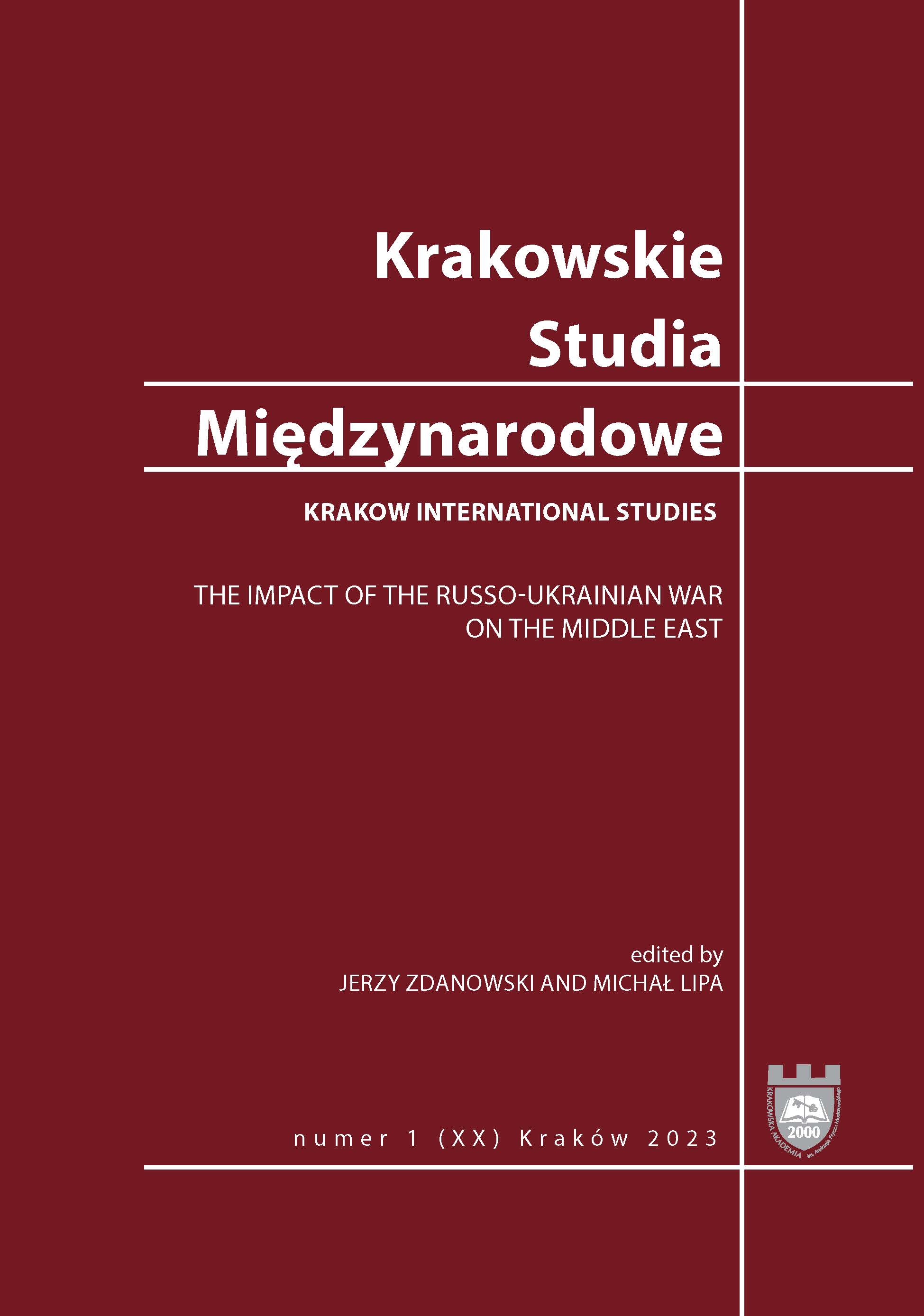
The dominant view towards the Middle East is that the region is stuck in the past and plagued by conflict. Therefore, it was anticipated that Middle Eastern states would take a side in the Russian invasion of Ukraine. Despite expressing sympathy for Ukrainians due to their own experiences of humiliation caused by several wars, the Middle Eastern people and states remained cautious and chose to avoid getting involved in the conflict. It seems that the view of the Middle Eastern middle class had an influence on state decision-making regarding involvement in the war in Ukraine. Considering the rise of an educated middle class in the region, it can be hypothesized that the middle class’s priority is political-economic instability rather than engaging in further wars. The objective of this research is to comprehensively understand the Middle Eastern middle class’s viewpoint on war.
More...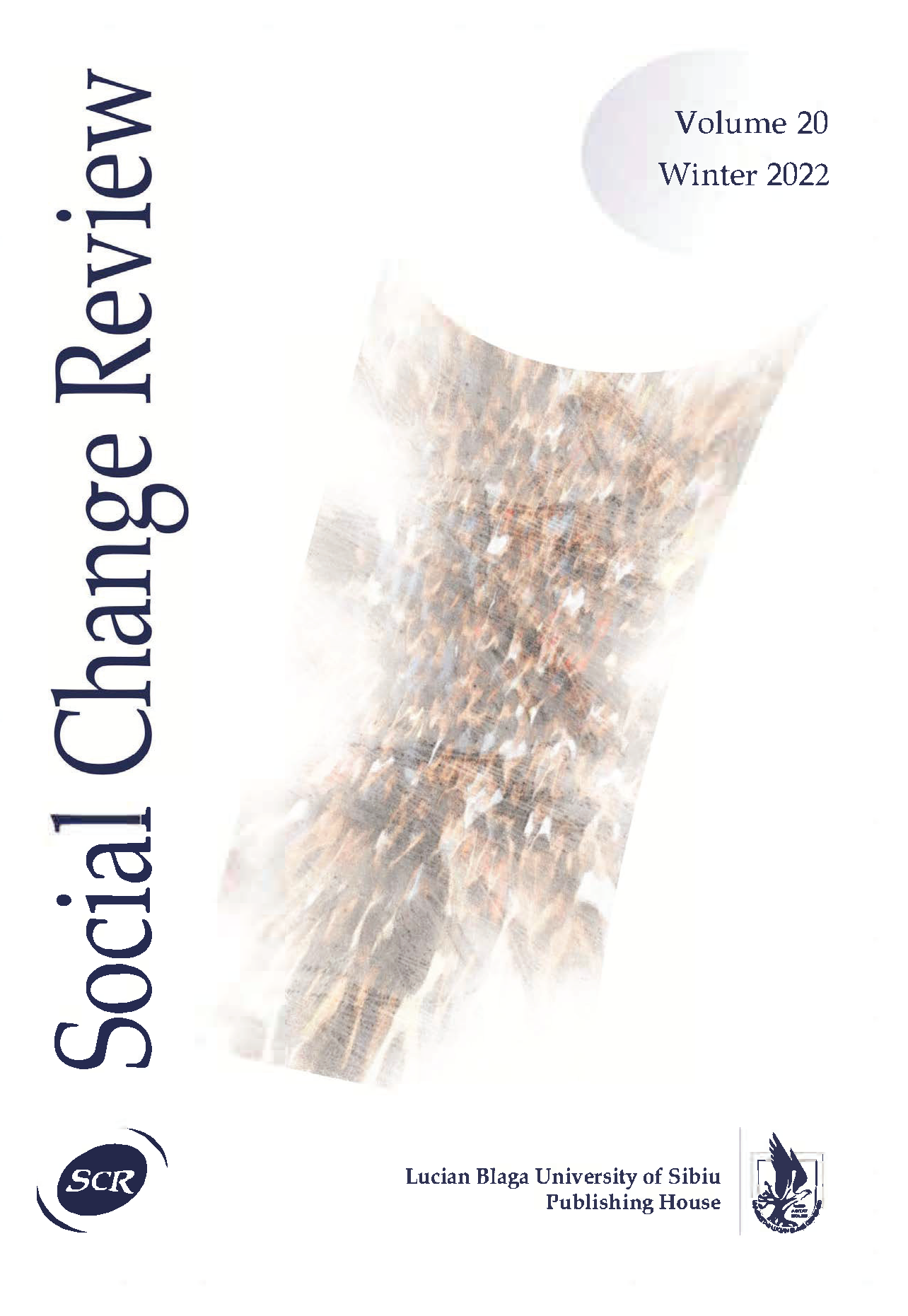
Social solidarity is increasingly under scrutiny in the contemporary world. Modern phenomena such as individualization, globalization, and migration have sparked inquiries into the dynamics and transformations of solidarity. Within this context, our study seeks to address one dimension of solidarity: the actions that embody it. We embark on a two-fold mission. On the one hand, we delve into the characteristics of the people engaging in solidarity actions. On the other hand, we compare results regarding acts of solidarity in Romania across different time frames. Our analysis mainly draws from the data collected through the European Values Survey in 2018. Comparisons are made with results from previous analyses and data from the 2012 World Values Survey. To accomplish these ends, we rely on both descriptive and multivariate analyses. Results suggest that approximately two-thirds of Romanians engage in solidarity actions. The likelihood of involving in solidarity actions is mainly influenced by age, religious behaviour, individualization, membership in associations, and recent volunteering behaviour.
More...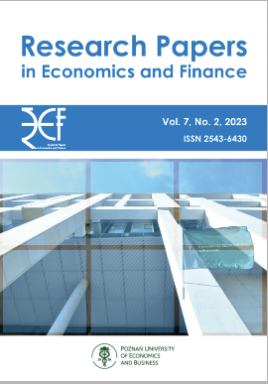
The aim of this article is to present the concept of Consumption of Lifetime developed by the author and to show the impact of the phenomenon of digitalisation of society on decisions related to this concept. The author conducts an analysis in the context of consumption of lifetime to show the phenomenon of digitalisation and society’s consumption decisions. The process of digitalisation was particularly visible during the pandemic and the restrictions related to it, when education, work and interpersonal contacts were made possible with the use of devices connected to the Internet. These devices were also often used to make remote purchases. The implementation of the article made it possible to formulate research questions and conclusions that confirm the importance of considering decisions related to the consumption of lifetime in the period of ongoing digitalisation of society. Another interesting issue is the post-pandemic period, in which it is possible to observe whether consumption returns to the pre-pandemic state and previous purchasing behaviour. Currently, there is a noticeable tendency to return to the permanent consumption habits observed prior to the pandemic.
More...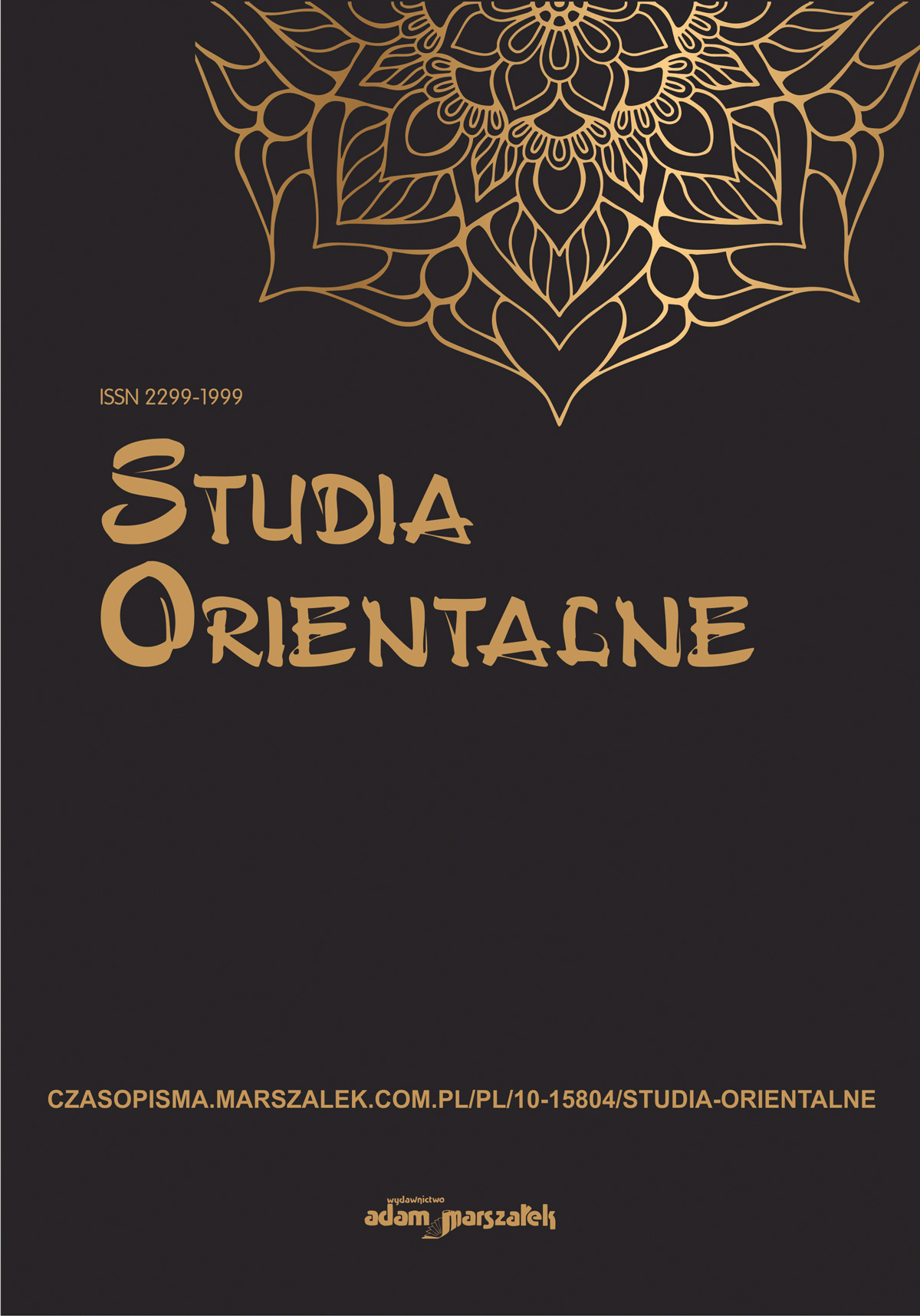
The article analyses the transformation in modern Ukraine in specific manifestations of their specificity, namely – the subjectivation and massization of Ukrainian society. In analysing this problem, parallels are drawn with theconclusions of already developed concepts and ideas of foreign and Ukrai-nian philosophers. In the modern civilized world, according to the world-famous scientist F. Fukuyama, there are two mutually exclusive processesdependent primarily on Western civilization. One of them is the defragmen-tation of communities by group identities: professional, age, religious, sexual,etc. Such a mosaic of community leads to the disappearance of unity in thecountry, the growth of mutual claims, misunderstandings and conflicts, theindividuation of members of society to the existence of atomised individualswho lose touch with their social environment. On the other hand, there isa process of identifying the mass of people as social beings with more pow-erful groups, primarily nations, which leads to mutual claims at the interna-tional level and threats of authoritarianism and destruction of democracies incertain countries, especially those that have entered the modernisation pro-cess. And yet F. Fukuyama believes that understanding is possible. It is worthlooking for and finding a reasonable compromise that leads to consensus.According to the author of this intelligence, such a process can be tentativelydescribed as the formation of “liberal nationalism”. The article concludes thatstrengthening the subjectivity of modern Ukraine is a necessary conditionfor its self-affirmation as an independent state – a self-sufficient actor inthe historical arena. One of the main directions in the development of subjectivation is the demassization and demassification of post-Soviet society,overcoming all signs of its postcolonialism.
More...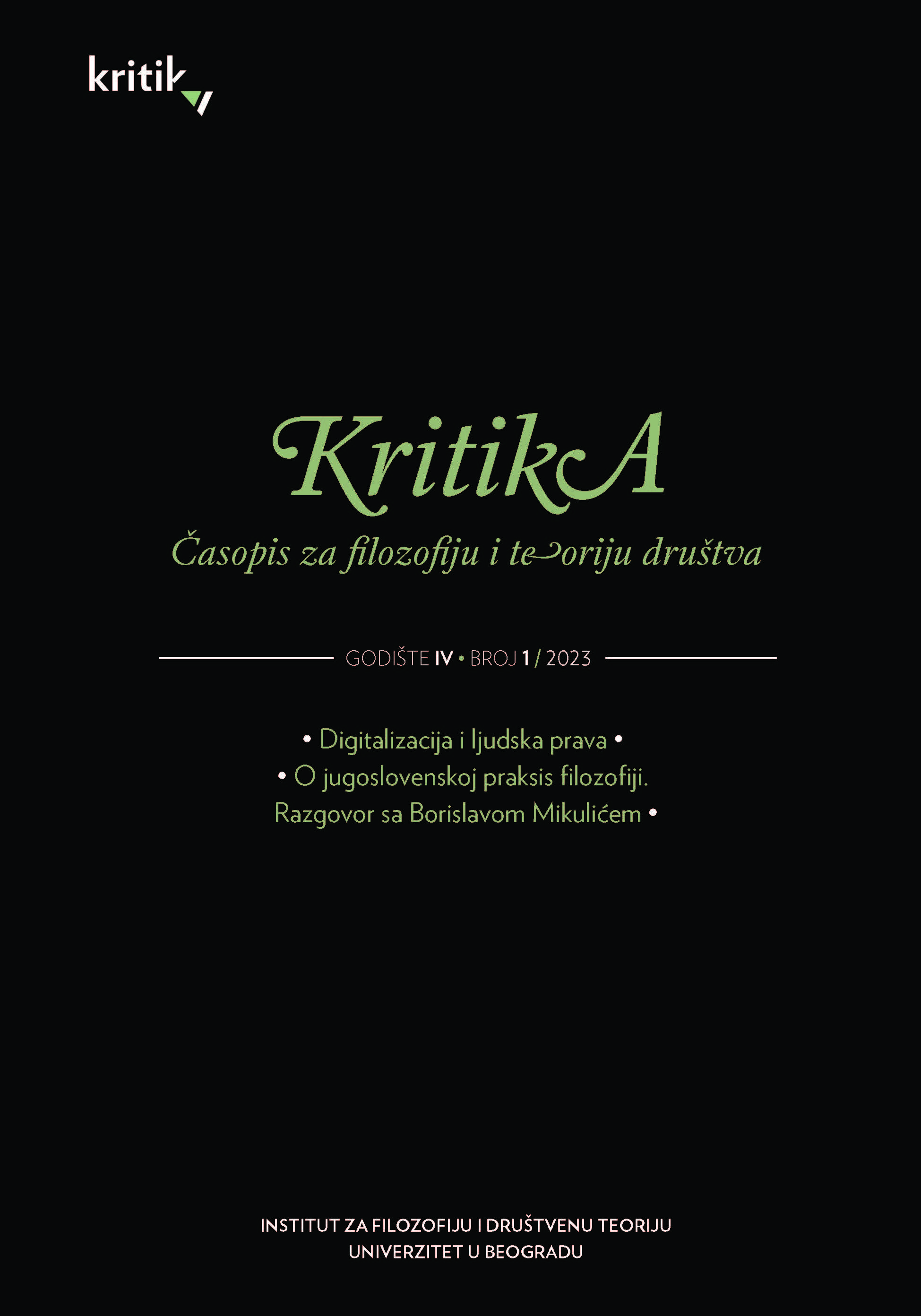
In postindustrial societies, attention has become a more valuable currency than the one we store in our bank accounts. In this article I wonder how this phenomenon affects social and political activism, which has to compete for attention with commercial actors on the one hand, and big, financially more powerful political organizations, on the other. Having this in mind, activist collectives use celebrities in order to be more competitive in terms of attracting attention, since celebrities carry visibility and attract attention on the basis of the vocation of their job. I am dealing with the phenomenon of “celebrity activism” in the context of Serbia as a case study. Firstly, I wonder about the extent to which the “attention economy” affected activism in Serbia, as well as about the role of celebrities in activist endeavors against the “laws” of the attention economy. In this study, I will focus on three activist collectives, namely “Protiv diktature”, “Jedan od 5 miliona” and ekološki pokret, in a wider sense of meaning.
More...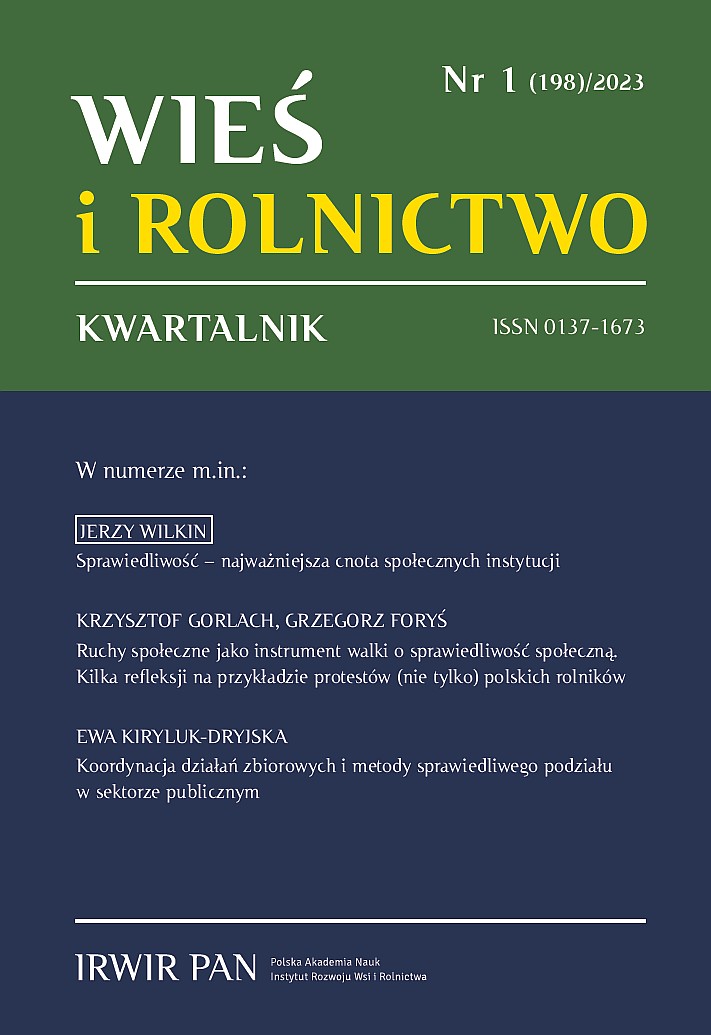
Justice is an area of research and the subject of theoretical works, just like the categories of truth, beauty and rationality. Apart from some more general remarkson justice, the present text concentrates on issues of justice considered from the point ofview of the interests and theoretical achievements of economics, and also on the problemof territorial justice. To the question: What is territorial justice?, I propose the followinganswer: Territorial justice is a form of social justice that, apart from the basic featuresof that notion, in relation to individuals and social groups takes into account their spatialcircumstances, treating space (territory) as a potential and real-term barrier to accessingthe principles of justice.
More...
Justice is an area of research and the subject of theoretical works, just likethe categories of truth, beauty and rationality. Apart from some more general remarkson justice, the present text concentrates on issues of justice considered from the point ofview of the interests and theoretical achievements of economics, and also on the problemof territorial justice. To the question: What is territorial justice?, I propose the followinganswer: Territorial justice is a form of social justice that, apart from the basic featuresof that notion, in relation to individuals and social groups takes into account their spatialcircumstances, treating space (territory) as a potential and real-term barrier to accessingthe principles of justice.
More...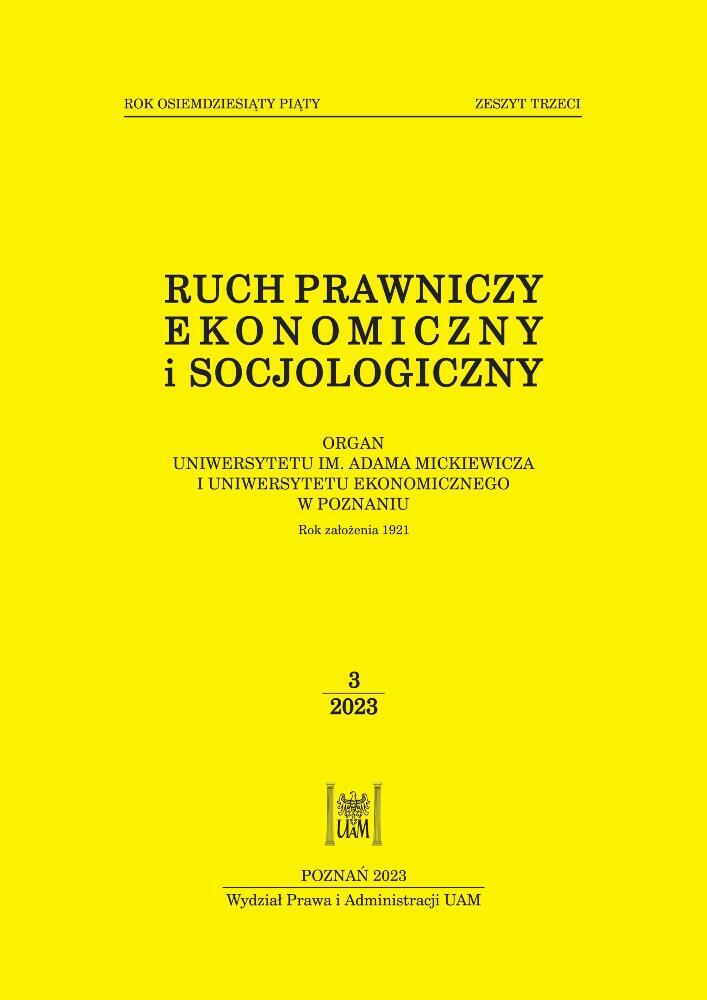

The text describes an experimental form of combining sociological research with collective artistic activity during the 17th Lublin Night of Culture. The study involved collecting TST (twenty statement tests) from festival participants. The "bridge" element between research and artistic activity was the choice of a framework identity or a counterpoint to the test – in the form of an aphorism. The artistic activity took the form of a flash mob using symbols identifying participants with selected aphorisms, and then proposing new identifications. The last one broke all the previous ones, creating an ephemeral community.
More...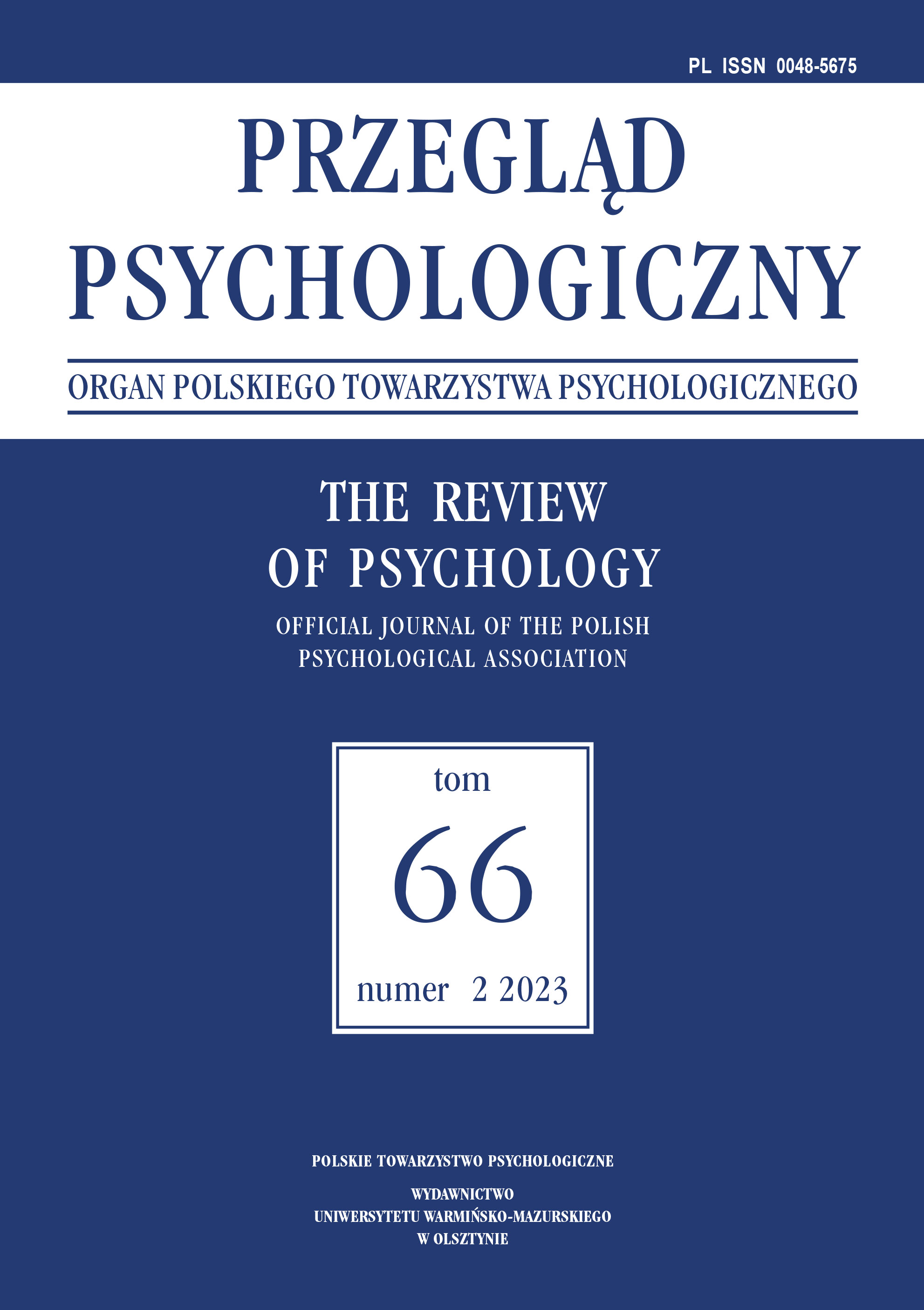
Objective: During the COVID-19 pandemic, many individuals perceived a threat to their freedom due to government-imposed restrictions on specific behaviors, motivating them to take actions against these limitations. The Reactance Theory (Brehm, 1981) proved valuable in explaining the motivation of these individuals to resist anti-COVID regula- tions. Numerous studies have been published, demonstrating that experiencing reactance against anti-COVID policy leads to actions contradictory to these measures. This article aims to describe a systematic review of studies examining the relationship between regu- lations aimed at limiting the pandemic and reactance to these actions.Method: The review included works from the EBSCO, Web of Science, and Scopus data- bases, measuring reactance as a state or trait, along with variables directly related to combating the COVID-19 pandemic.Results: The literature review identified 59 studies on the relationship between anti-COVID regulations and reactance to these actions. An analysis of the characteristics of the stud- ied populations, research methodology, and obtained results was conducted. The study outlined persuasive measures encouraging actions in line with government recommen- dations that intensify or reduce reactance, as well as those that do not influence it. Fur- thermore, it described various relationships between reactance (trait and state against regulations) and the willingness to comply with anti-COVID regulations.Conclusion: The presented literature review identified determinants of experiencing a state of reactance against anti-COVID regulations and described relationships between reactance and the effectiveness of these regulations. The results of the review may aid in designing future regulations aimed at combating epidemics.
More...
Objective: During the COVID-19 pandemic, many individuals perceived a threat to their freedom due to government-imposed restrictions on specific behaviors, motivating them to take actions against these limitations. The Reactance Theory (Brehm, 1981) proved valuable in explaining the motivation of these individuals to resist anti-COVID regula- tions. Numerous studies have been published, demonstrating that experiencing reactance against anti-COVID policy leads to actions contradictory to these measures. This article aims to describe a systematic review of studies examining the relationship between regu- lations aimed at limiting the pandemic and reactance to these actions.Method: The review included works from the EBSCO, Web of Science, and Scopus data- bases, measuring reactance as a state or trait, along with variables directly related to combating the COVID-19 pandemic.Results: The literature review identified 59 studies on the relationship between anti-COVID regulations and reactance to these actions. An analysis of the characteristics of the stud- ied populations, research methodology, and obtained results was conducted. The study outlined persuasive measures encouraging actions in line with government recommen- dations that intensify or reduce reactance, as well as those that do not influence it. Fur- thermore, it described various relationships between reactance (trait and state against regulations) and the willingness to comply with anti-COVID regulations.Conclusion: The presented literature review identified determinants of experiencing a state of reactance against anti-COVID regulations and described relationships between reactance and the effectiveness of these regulations. The results of the review may aid in designing future regulations aimed at combating epidemics.
More...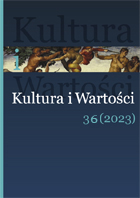
This article uses the phenomenological method to explain the emotion of shock, which is at the heart of political polarization. It answers the following question: what is this often par- adoxical feeling of disbelief that we feel when we find something shocking, and why does it make people strangers to one another? Unlike other existing conceptions of shock (Stockdale, Osler), we employ the phenomenological framework of Lorelle’s “traumatic experience” to make explicit the positive aspect of shock: showing how shock is an experience in itself and not merely a failure to assimilate experience. The conclusion reached is that surprise should not be seen as always a passive acknowledgment of the gap between our expectations and reality; in- stead it should be fully recognized as an active force. Thus, disbelief can be a moral standard that asserts itself and imposes an aura of strangeness on the people we disagree with.
More...
This article is a case study of the 2022 Lukov March and a counter-demonstration to this march. The Lukov March is an annual event organised in Sofia by the far-right Bulgarian National Union, and the so-called Anti-Lukov March is a counter-demonstration organised by, among others, the group called Feminist Mobilisations. The article is based on two years of research conducted while working on a co-authored master’s thesis, involving netnography, participant observation and narrative interviews with women who identify with feminist or far-right activism. The study aims to analyse both events and both groups in the context of performative activist actions in the urban space of Sofia, with a particular focus on the issue of the performative body and performance in social space. In our work, we use the method of critical discourse analysis and anthropological methods.
More...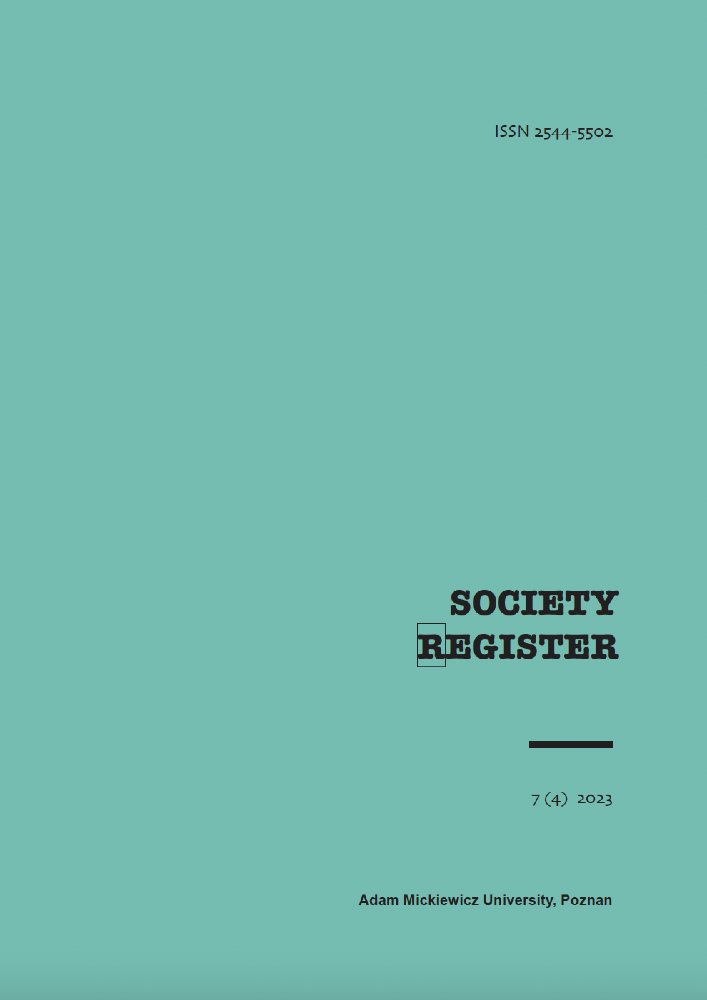
The article aims to analyse the physical practising of gender by women in Polish nationalist organisations to reflect on what vision of the nation is reproduced by these embodied gender practices. Using information obtained from interviews and observations, I seek an answer to how the physical gender practices correspond to the logic of the gendered presence of women as members of a national community (Anthias & Yuval-Davis, 1989). One of the main conclusions of the analysis is that the physical body and the gender practices involved in it are a significant stronghold of reproducing the roles that the nation imposes on women. This is related to justifying cultural differences by referring to the biological differences between genders. What is particularly interesting, however, is the fact that the body and its physical capabilities provide space for gender transgressions beyond established norms.
More...
Sociologist, Professor, and, among other positions, holder of the “Emile Durkheim” chair at the Sorbonne, and director of the Center for Research on the Imaginary, Michel Maffesoli is an essential personality in the French academic-media landscape. Although he is often contested as a scientist, he nonetheless remains an enlightened observer of postmodernity and his socio-political analyzes on various themes linked to societal developments remain references with strong prophetic value, whatever his detractors may say. In his essay The era of uprisings (Maffesoli, 2021), he is a critical observer of the growing divorce between political-media elites and French citizens which is manifested by the multiplication of protest movements. This thesis leads us to go beyond conventional interpretations of poverty or inequalities in order to understand the extent of the civilizational crisis we are experiencing and the transition to after-modernity. The latter serves as a preamble to a denunciation of ‘soft totalitarianism’ and the rejection of human finitude which are rampant today in France since the Covid-19 pandemic. Furthermore, and perhaps paradoxically, it fuels ‘the trial of utopian imagination’ (Wunenburger, 1978) while calling for the revival of a revolutionary spirit. This review essay aims at 1) putting the author's arguments into perspective with previous but also current works in order to gain impartiality, and 2) comparing the achievements of the work with socio-political aspects touched upon or even ignored, this which makes it possible to extend the political and social scope of the analysis.
More...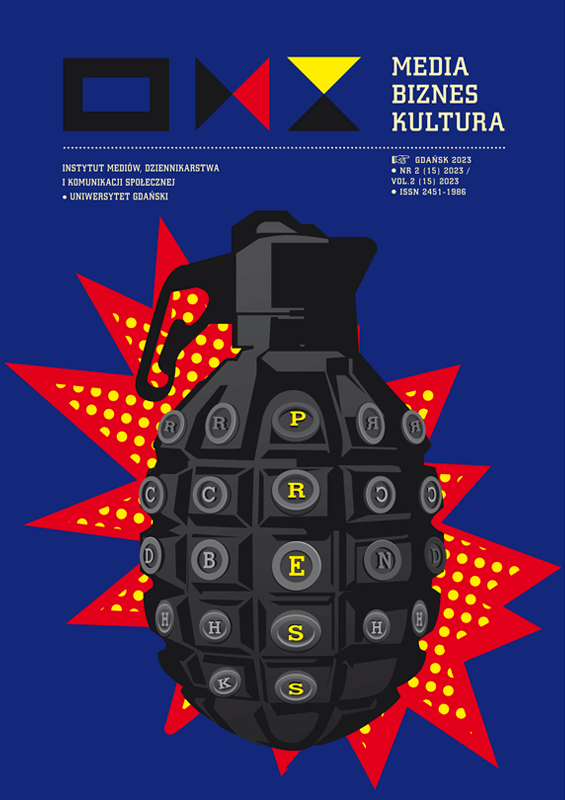
This study is an introduction to research on the relationship between new media and behaviors related to sexuality. The subject of the research was the erotic portal Datezone, presented from the media perspective of the cultivation theory of the American researcher George Gerbner. The case study uses the method of observation, analysis and criticism of sources, and content analysis. The article answers the questions: 1) What is the content of Datezone?, 2) who are the users of the portal and 3) what are the distinctive features of erotic portals. The analysis showed that Datezone is a more time-intensive website than Onet. The work may open discussions on other aspects of the functioning of new media in the sexual space.
More...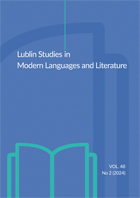
This article examines Donald Trump’s television, presidential, and post-presidential identities, drawing on key research in reality television studies and American politics. Specifically, it locates the early 2000s reality show The Apprentice as the key textual construct which precedes and informs the “crises” associated with Trump’s political career. I argue that the show exhibits a range of highly effective and original dramatic tropes and rhetorical devices which continue to shape Trump’s identity as a politician. He has gone on to creatively adapt shibboleths such as “you’re fired!” and other fect combative postures of the show in response to the calamities and major flashpoints of his presidential and post-presidential career. As Trump successfully transferred the hyperbole, motifs, and para-social relationships of the series The Apprentice to US national politics, he advanced a potent blend of performative power and popular culture cues never seen before in American history. I show how these theatrical cues and show constructs have helped him dominate a complex media landscape and exploit the fractures of a nation in crisis.
More...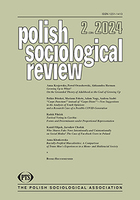
On the basis of a post-election questionnaire survey and self-reported voter motivations analysis, this article explores the extent, forms, and determinants of tactical voting in the 2021 Czech parliamentary elections. The prevalence of tactical voting was estimated to be approximately 15%. A significant portion of the electorate harbored a strong aversion towards the ANO political party and its leader, Andrej Babiš. Consequently, regardless of their political preferences, these voters opted for SPOLU, the party with the best chance of defeating him. This strategic approach significantly influenced the election results, including having an impact on the overall winner. According to the binary logistic regression model, younger individuals and those with higher levels of education inclined more towards tactical voting. These findings correspond with studies from different countries, confirm the socio-demographic conditionality of tactical voting, and contribute to the wider discussion of this concept in proportional representation systems.
More...
By exploring users’ engagement in communication and their social media literacy (SML), this study examines who shares fake news on Facebook intentionally and unintentionally. A two-phase online survey has been conducted among 1,000 active Facebook users in Poland. We found that users engaged in communication on multiple social media platforms tend to share fake news intentionally. There is a negative relationship between SML score and intentional sharing. However, those with higher functional consumption scores (the dimension of SML) tend to share fake news intentionally. Men are less likely to share fake news unintentionally. The cross- tabulation of classes and variables related to social media use revealed that users with lower level of salary, education and occupational status are most likely to share fake news both intentionally and unintentionally.
More...